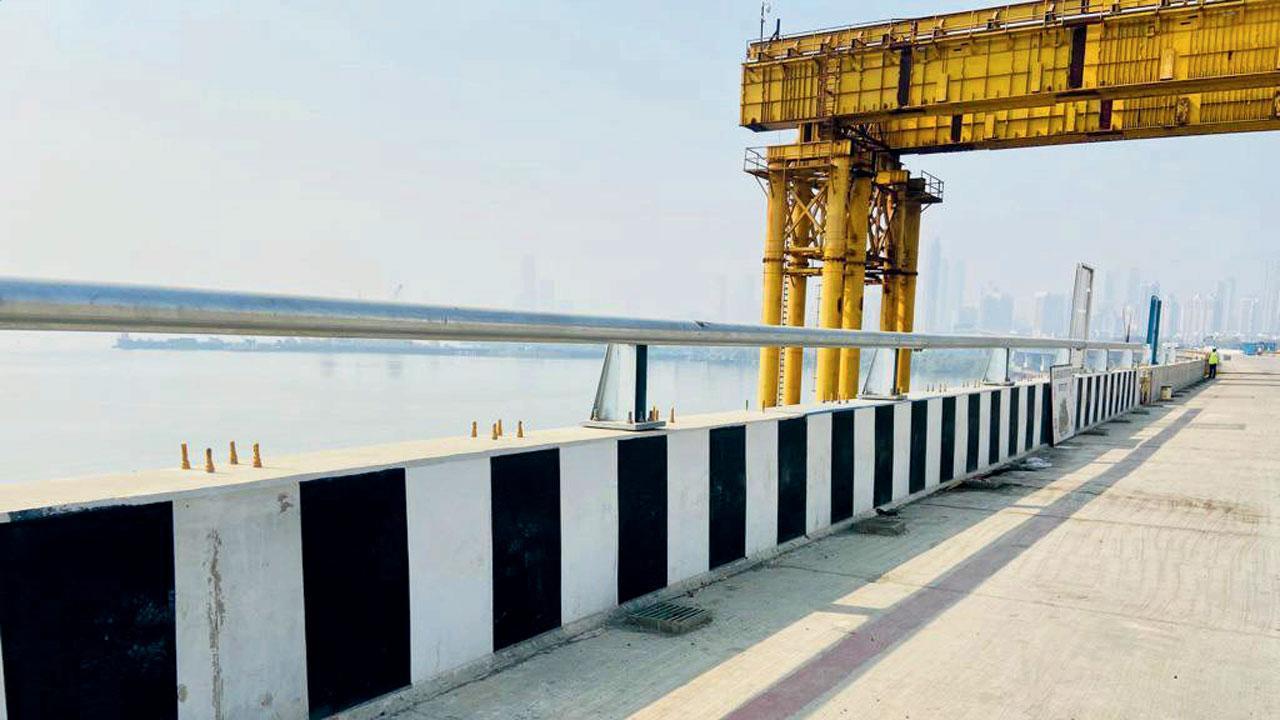Design affords commuters unrestricted view of sea, and flamingos as well

One of the crash barriers being installed at the outer sides of the 22-km-long Mumbai Trans Harbour Link
The Mumbai Metropolitan Region Development Authority (MMRDA) has started installing vehicle crash barriers on the outer sides of the Mumbai Trans Harbour Link (MTHL) carriageway. The overall height of these hybrid crash barriers is 1,550 mm. The height of the barriers’ concrete section is 900 mm while the metal railing above them is 650 mm tall.
ADVERTISEMENT
Initially, the MMRDA had decided to opt for a five-foot wall on either side of the 22-km-long structure. However, this would block the sea view and create a tunnel effect for drivers. The concrete-metal barrier adopted for the MTHL complies with the international standard EN 1317. Physical crash tests were carried out abroad as per international safety standards.
S V R Srinivas, metropolitan commissioner, said, “Crash testing of the new barrier design was successfully carried out in the United Kingdom and South Korea. Along with safety, it was designed in such a way that commuters can enjoy the view of the sea and flamingos. We have completed 12 per cent work of the total length of the casting in a month.”
The under-construction MTHL, also known as the Sewri-Nhava Sheva Harbour Link, is a six-lane bridge that comprises a 16.5-km-long section over the sea and 5.5-km-long viaducts on land at either end. The MTHL has interchanges at Sewri in Central Mumbai, Shivaji Nagar at Mumbai Bay and NH-4 B at Chirle, Navi Mumbai.
The MTHL has been identified as being crucial for improving connectivity between Mumbai and Navi Mumbai and economic development in the Mumbai Metropolitan Region. The project, which is expected to be completed in 2023, will reduce the time taken to travel from south Mumbai to Navi Mumbai to 20 minutes from the current 120.
650
Height of barriers' metal rail in mm
 Subscribe today by clicking the link and stay updated with the latest news!" Click here!
Subscribe today by clicking the link and stay updated with the latest news!" Click here!







